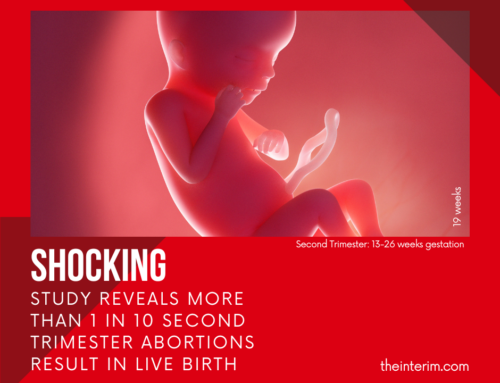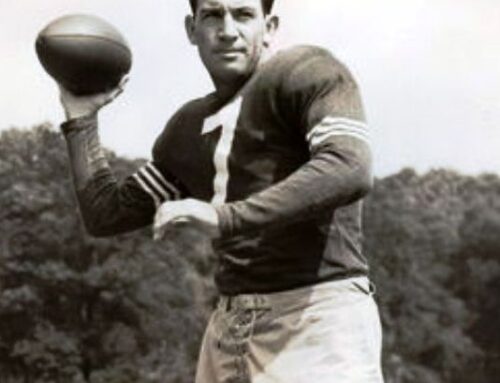Montreal hosted the Fifteenth Annual General Meeting of the Alliance For Life. Approximately 200 delegates from across Canada attended the three-day meeting, hearing respected guest speakers and rallying together in a spirit of unity.
It began with the showing of Eclipse of Reason, and a speech from the film’s creator. Dr. Bernard Nathanson. Eclipse of Reason is graphic in its stark depiction of the bloody pieces of the aborted child being removed from the mother and piled on a surgical table. The contrast with the serenity of this same child seen through fetoscopy within the mother’s womb moments earlier is unforgettable.
Dr. Nathanson maintains that the violence of abortion must be shown, a sentiment echoed by actor Charlton Heston in his introductory comments to the film. Dr. Nathanson and the film “plead that we cease prosecuting and executing babies for the high rime of being unwanted, calling for amnesty for the unborn.
Dr. Nathanson, who performed thousands of abortions in his New York facility, came intellectually to the Pro-Life Movement eight years ago. Today he comes with faith, speaking with a heartfelt compassion that was not evident several years ago.
He is “unequivocally committed to wiping out all abortions.”
On Friday morning, delegates heard a panel of clergymen discuss the sanctity of life. Rev. Hudson Hilsden, co-ordinator for social concerns and public relations for the Pentecostal Assemblies of Canada, stated that his church believes “human life is sacred from the moment of conception. The only “abortion exception” is to save the life of the mother.
The Right Reverend Reginal Hollis, Anglican Bishop of Montreal, pointed out that his church rejects “abortion on demand” but suggested to the 1967 Federal Standing Committee of the House of Commons that abortions should be allowed to protect the life or health (in its broadest definition) of the mother.” Rev. Hollis suggested that his church’s “arguments for abolition of the death penalty – that life is sacred and violence “abhorrent – could be used for abortion.”
Bishop Eugene P. Larocque, Roman Catholic Bishop of Alexandria-Cornwall, reiterated his church’s position that “abortion at any stage is the taking of human life.”
Reverend Don Neil, Pastor of Knox Crescent Kensington and First Presbyterian Church in Montreal, told the audience that his church stated in 1967 that it was “morally indefensible to legalize abortion but recommended that the law be changed to allow abortion when the continuation of pregnancy would endanger the life or health of the mother.:
All the panel members pointed out their churches’ proclamations that it was the “duty of Christians to provide love, protection, care and counsel to women and their babies, as well as forgiveness and care to those who have had abortions.”
Failures of compromise
Later in the day, Paul Dodds, a Toronto attorney, conducted a workshop entitled “Two Decades of Legalized Abortion, The Failures of Compromise.” In a society which has accepted abortion on demand for twenty years, pro-life people stand up for the truth, carrying a message to society that its values are deadly. Stated Mr. Dodds, “Pro-abortionists will only be successful if pro-lifers cease to proclaim the truth – that we are dealing with human life and that killing babies and other members of the human family is wrong.”
One afternoon session focused on effective recruitment and placement of volunteers with Chuck Smith, Alliance board member from Alberta, leading the session. A second workshop was presented by Kathy Gray, a registered nurse and counselor with Women Exploited by Abortion (WEBA). Kathy discussed the six counseling steps involved in healing the wounds of abortion. In counseling those in need, complete and truthful information about abortion , adoption and parenthood is needed to enable women to make the best decisions based on facts and full support.
A third workshop, Palliative Care, was presented by Connie Osborne, a past president of Alliance for Life and a recruiter/auditor of palliative care volunteer programmes. The philosophy of palliative care and the grief process were clearly presented.
The basic principles of palliative care are:
- Treatment of the patient as a person,
- Avoidance of inappropriate treatment,
- Pain management and symptom control,
- Care of relatives,
- Bereavement support,
- A team approach, which includes the patient and the family.
In a workshop dealing with the role of advisors to Parliament on moral issues, Rev. Hudson Hilsden provided suggestions for communicating effectively with government leaders.
During another session, the pro-life political parties – Christian Heritage Party and Family Coalition Party – gave a report on their organization, activities and future plans.
At the Annual General Meeting on Saturday morning Alliance’s President Heather Stilwell of British Columbia, presented an uplifting, encouraging message.
Workshops
Saturday’s events continued with a number of excellent workshops. Tom Schuck, president of the Saskatchewan Pro-Life Association and Alliance board member from Saskatchewan, enlightened delegates on way to increase group memberships. Tom helped the Weyburn and District Pro-Life Society grow from a membership paying $2,700 in 1978 to one paying $70,000 in 1986.
A panel consisting of Anna Desilets, executive director of Alliance For Life; Sabina McLuhan, editor of The Interim; Jim Hughes, president of Campaign Life and Bill Lenihan, president of Coalition for Life; discussed their views of the single most important pro-life action. All agreed that prayer is the foundation of the pro-life movement.
Dr. Heather Morris, an obstetrician and gynecologist at Women’s College Hospital in Toronto and a past president of Alliance, discussed the difference between contraception and abortion, analyzing chemical and mechanical contraceptives and abortifacients.
Beverly Hadland, director of the Ontario Abortion Outreach Centre, spoke from personal experience of two abortions as she sensitively addressed port-abortion trauma. No doctor or counselor informed Beverly of fetal development nor of the physical side-effects and emotional problems that can result from abortion.
“What woman contemplating an abortion or those who have submitted to one need to know is that they are loved. They have already condemned themselves. They don’t need our condemnation but our love,” explained Ms. Hadland.
By picketing and counseling outside the Morgentaler facility in Toronto, Clare Marmelo has saved lives. She encouraged and motivated delegates to continue their fight for life by sharing her personal success with sidewalk counseling.
French-speaking delegates from Quebec and other parts of the country participated in the following workshops: ‘Evolution of Jurisprudence and Respect for Life’ by Emile Colas, prominent Montreal attorney; Human Reproduction’ by Jean Dufresne, philosopher, researcher and consultant to both government and private industry; ‘The Experience of Abortion’ by Louise Bruneau, president and founder of Aide a la Femme Avortee; ‘Fighting for Life’ by Reggie Chartrand, championship fighter and Quebec champion of the unborn; ‘Law and Abortion, The Situation in Quebec’ by Gilles Charron, director of journal La Voix de Milles Ies, Alexander Khoiuzam, Montreal attorney and Lucille Gordon, national vice-president of Coalition for Life; and ‘Euthanasia in Children’ by Dr. Albert Larbrisseau, a physician practicing in Montreal, and Lucille Gordon.
Together – Choose Life
The Theme of the conference, Together – Choose Life, was evident in the discussions and in the lives of the delegates, who displayed in every way a bond of love and caring. It also was evident through the amalgamation of Campaign Life and Coalition for Life.
The Saturday night banquet address was given by Father L. Barry, assistant professor of Religious Studies at the University of Illinois and the author of several books and numerous articles, including “Medically Vulnerable Persons Protection Acts, The Ethics of Providing Nutrition and Fluids to Incompetent Patients.
Kurelek award
Father Barry scrutinized the U.S. court decisions that have accepted and promoted euthanasia. “The view that some lives are worthless because they are not convenient, initiated by the Roe v. Wade decision of the U.S. Supreme Court legalizing abortion, is reinforced by euthanasia advocates. If churches speak out, euthanasia will be stopped. Silence will bring mercy killing,” stated Father Barry.
The Kurelek Award was presented at the closing session of the conference. This pro-life award, instituted in 1977 to commemorate the anniversary of the 1975 Petition of One Million, is presented annually to a Canadian who has made an outstanding contribution toward promoting appreciation and respect of human life.
In 1978, the award was given posthumously to its designer, artist William Kurelek, and as a mark of gratitude, was renamed the William Kurelek Award in memory of this gifted, generous artists.
The award itself consists of a plaque showing the “hourglass.” William Kurelek designed especially for the Festival for Life, the occasion of the presentation of the first award.
This year the award was presented to Fred Sawyer of Montreal. “It is very appropriate that, in this year of the Homeless, we should recognize a person who has been tireless in his care and concern for the sick, the hungry and the homeless,” said Anne Kiss, Alliance for Life board member from Quebec, as she presented the Kurelek Award to Mr. Sawyer.
Fred Sawyer has been active as a team member of the Palliative Care Unit of Royal Victoria Hospital and the Montreal Convalescent Hospital. Besides the formal and other informal work with the sick and hut-ins, he, with volunteers, established Harvest Montreal to feed the needy of his city. With a beat up van, volunteers pick up donated food supplies all over the city and distribute them to 115 agencies and organizations where the food is used for the needy. Mr. Sawyer currently is working on expanding the work of Montreal Harvest in recycling.



